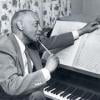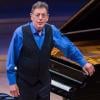
After decades of neglect, Florence Price is finally commanding respect. Her Piano Concerto in One Movement from 1933 received its belated San Francisco premiere this weekend at Davies Hall in an electrifying performance by jazz and crossover pianist Aaron Diehl with the radiant Xian Zhang leading the San Francisco Symphony.
Price (1899–1952) was saddled with classical music’s double prejudices against women and African Americans. An accomplished pianist, she had to earn a living playing theater organ. Price performed the concerto only once, in a 1934 performance at the Chicago Musical College. The piece was soon forgotten, its score and parts scattered. In 2009, incomplete parts were found in Price’s long-abandoned summer home, and others later turned up at an auction house. A playable edition based on these fragments was recently published by G. Schirmer, finally sparking a wave of performances over the past two years.

Price writes in a late-Romantic aesthetic — full and passionate, with a knowing eye for tradition and innovation. The first movement startles us with a Lisztian cadenza that unexpectedly breaks in after only nine measures of orchestral introduction; Price makes sure from the start there’s no missing the virtuosic piano-writing. The third movement is another surprise: as in many traditional concertos, it’s in a lively dance rhythm, here not a jig but a juba, an African form related to the rag.
Soloist Aaron Diehl, who in 2020 was one of the first to revive Price’s concerto, pumped up the energy already latent in Price’s rich late-Romantic writing, his playing by turns passionate and sparkling. Especially moving was Diehl’s duet with SF Symphony Associate Principal Oboe James Button in the slow movement, with its tender evocation of African American spirituals.
Diehl followed the Price with a sweet and supple performance of Scott Joplin’s Solace.

The concert opened with another S.F. premiere, Primal Message by Nokuthula Ngwenyama. Like Price’s, Ngwenyama’s music is reminiscent of late Romanticism, but takes a more modern theme, imagining how we might send a message to alien listeners in the universe about who we are as humans. The word “primal” in the piece’s title in one sense refers to prime numbers — particularly, the scale degrees two and five (re and sol). But the word also denotes being at one’s best, and this “primal message” aims to show us humans as rich in “emotional intelligence,” as Ngwenyama said in her engaging address at the opening of the concert. If any interstellar music fans were listening, they would have been moved by the work’s shimmering sound and its spiritual faith in the collective spirit — a virtue in short supply today on Earth.
Primal Message was originally written for viola quintet (you can hear that version here and above, with the composer on viola), and in that version especially, it has a warmth that evokes the music of Antonín Dvořák. So it was fitting that the program was rounded out with that composer’s exuberant Ninth Symphony, “From the New World.” Its famous spiritual-inspired English horn solo (well-deserved ovations for Russ de Luna) resonated powerfully with the African-American motifs in the Price concerto, and the grand chorales of brass and drums (kudos to timpanist Edward Stephan) stirred the heart.

Xian Zhang, music director of the New Jersey Symphony, is a powerhouse on the podium, a presence imbued with rhythmic energy and presence. Her left hand alone conveys a full bandwidth of intention. And that intentionality goes beyond performance to programming: For some years now Zhang has been an advocate for the presence of neglected and excluded voices in symphony halls.
Wouldn’t Florence Price have been thrilled to hear her concerto not merely included but spotlighted as the centerpiece in Zhang’s program? And isn’t it shameful that in Price’s lifetime such a performance was unthinkable?







